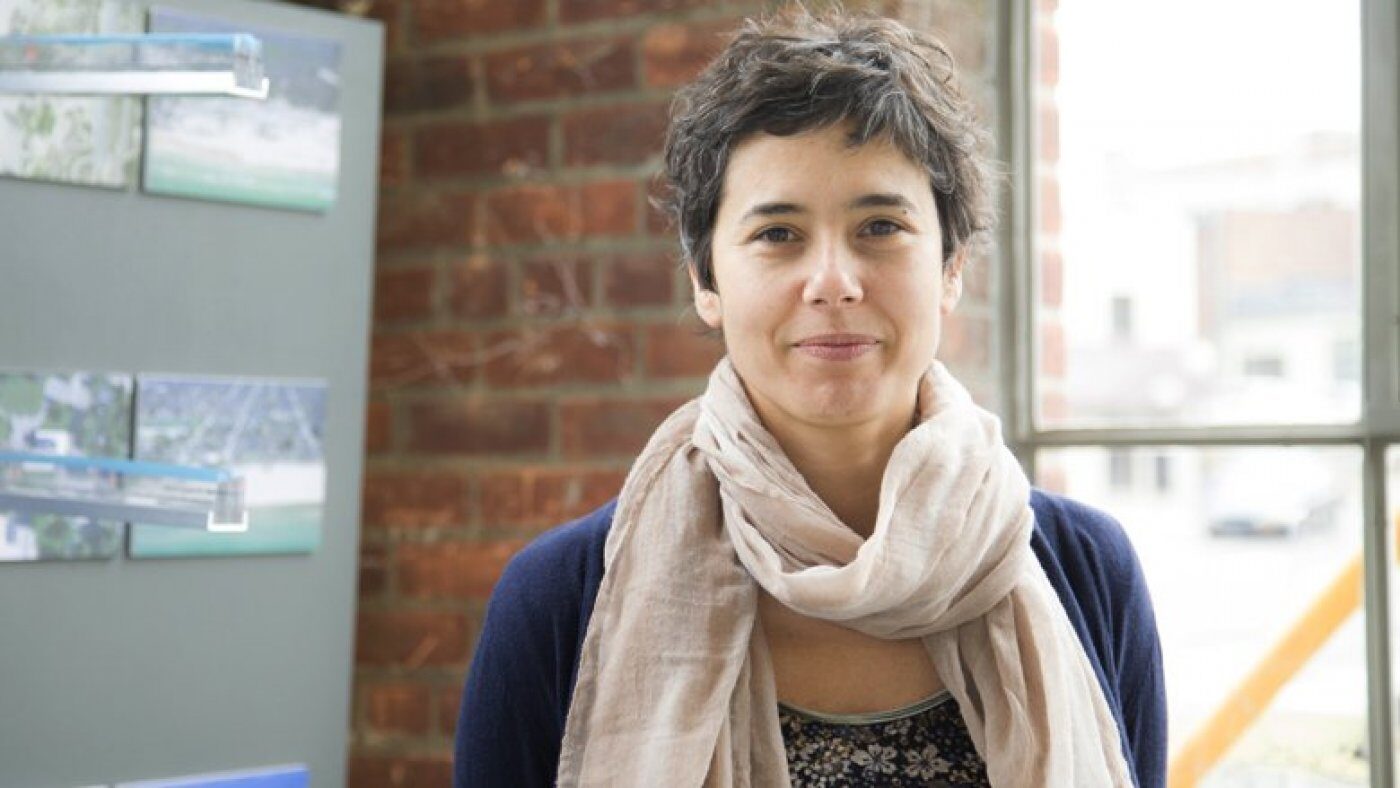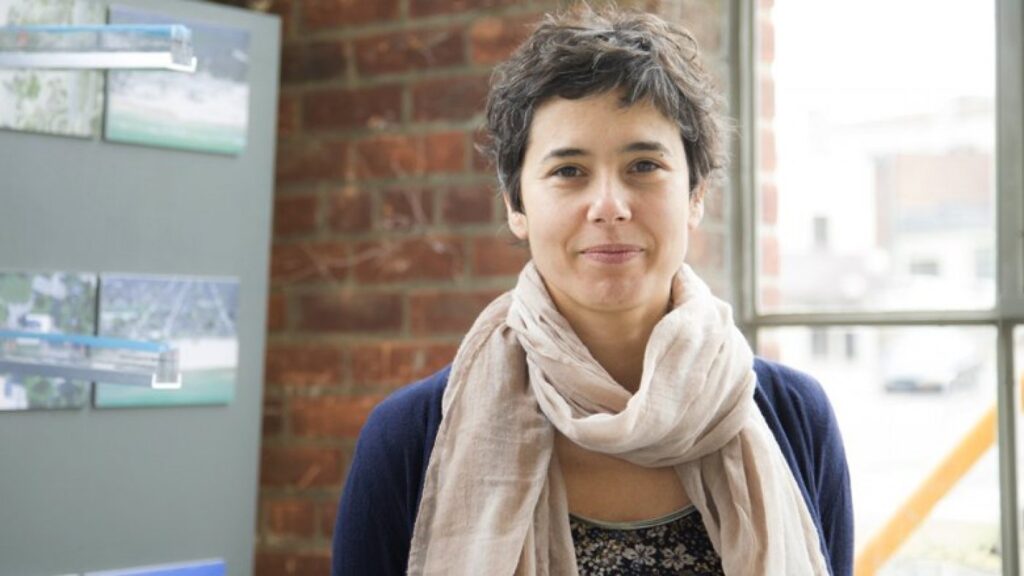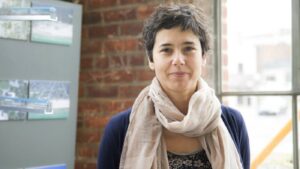Source: Taubman College

María Arquero de Alarcón
María Arquero de Alarcón is interested in bringing design and planning capacities to under-resourced communities that are typically overlooked by mainstream professional practice. Her voice becomes particularly animated when she describes the mutual learning that occurs from her collaborative projects with residents.
She appreciates learning from residents of impoverished areas “their own imagination of what city they would like to see.” As an associate professor of architecture and urban and regional planning at Taubman College, Arquero de Alarcón works on producing design strategies that are sustainable, resilient, and culturally nuanced.
She acknowledges that collaborative design processes are “inherently messy and imperfect,” as they seek to advance different interests. But the approach has the advantage of harnessing the “boundless assets” from each collaborator. “It’s a very humbling experience to realize that you are learning from residents, activists, and community organizers as much as you contribute,” she says.
Her work in Detroit continues today. With Taubman College colleagues Martin Murray and Olaia Chivite, she investigates what has happened in different neighborhoods after years of financial austerity and dwindling municipal services. She also is part of U-M’s Detroit River Story Lab, a public-engaged scholarship and teaching initiative dedicated to leveraging the sociocultural, historical, and ecological centrality of the Detroit River in its adjacent communities.
She explains that the Detroit River Story Lab invests in forms of storytelling that are inclusive, equitable, and complex. Working from the premise that the narrative infrastructure of regional communities is critical to sustaining social justice efforts, “the Lab builds on local partnerships to research, co-produce, and disseminate historically nuanced, contextually aware, and culturally rooted stories harnessing the symbolic power of the Detroit River in drawing out the lives and struggles of its adjacent communities,” she says.
Her work also has a global focus. Since 2016, she has been working with Ana Paula Pimentel Walker — an assistant professor of urban and regional planning at Taubman College — and a network of local collaborators and informal communities in the fast-growing southern periphery of São Paulo, one of the most environmentally diverse areas in the city. Residents in these communities are left with no other option to access adequate housing than occupy undeveloped land, she said. In the process, they are often criminalized for deforestation and water pollution and face eviction threats while enduring dire living conditions.
Read more here.



